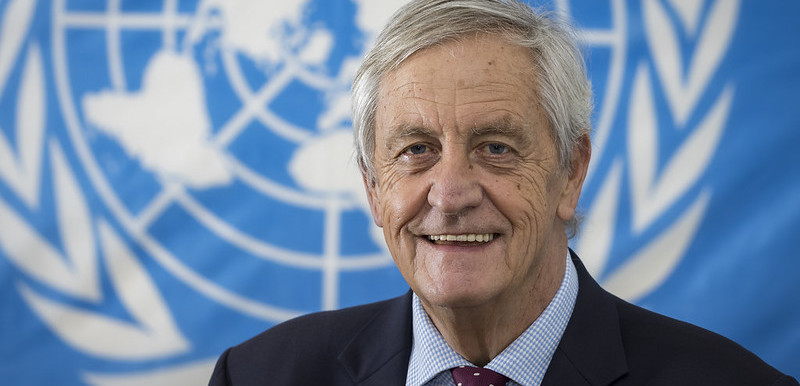The Special Representative of the UN Secretary-General and Head of the Mission in South Sudan, Nicholas Haysom, has said the responsibility to avoid divisive politics rests on all the citizens.
Haysom said in a press release to mark this year’s International Day of Peace on Saturday that promoting a culture of peace requires recognizing diversity as a strength and committing to building intercommunal harmony.
“Constitution making and elections are themselves divisive. Thus, it is critical that their approach to these processes be as nation building exercises. They must be inclusive and all South Sudanese need to own them,” said Haysom.
He thanked the Juba government for hosting the celebration, whose; “Nurturing a culture of peace: our collective responsibility”, theme is particularly relevant at this moment the country was at a crossroads on a journey towards lasting peace, democracy and development.
The theme, Haysom said, was a reminder that peace can only be achieved together and it can only be sustained when there is a political will, a common purpose and shared aspirations.
“In my view, South Sudan still has some work to do to develop those shared ambitions to cherish its collective aspirations.”
On the rescheduling of the General Election, earlier due in December, and the extension of the transitional period, Haysom warned of the risk of renewed conflict, and the political vacuum caused as a result of the want of electoral preparations.
“But it also allows further opportunity for nation building and we recognize that the mountain that must still be climbed is steep. Urgency is required. Not a pause,” he said.
The UN official highlighted that South Sudan faced a multiplicity of challenges, including the intercommunal violence, dire humanitarian conditions, a deteriorating economic environment, an influx of 800,000 refugees and returnees from the Sudan conflict, and extreme weather conditions causing floods.
He commended the South Sudanese for their resilience and reassured of the UN’s commitment to respecting their persistence in the pursuit of lasting peace and stability.
The International Day of Peace, observed globally on September 21, was established in 1981 by a unanimous UN resolution to encourage all humanity to commit to building a culture of peace.




